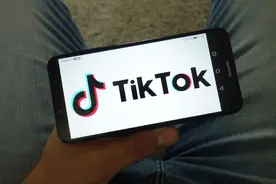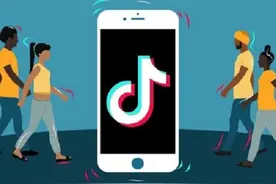Tiger sniffer note: As the most successful global product of byte beating, TikTok is facing unprecedented challenges.Will the strong intervention of the Trump government become a turning point for TikTok's overseas development? Why is the United States so afraid of TikTok? This article is compiled from Eugene Wei's blog, originally titled "TikTok and the Sorting Hat".The author once worked for Amazon, Hulu and Oculus, and analyzed the reasons for TikTok's success in the United States from its development, algorithm, product logic, etc.Compiled by: Huang Qingchun; Caption: Visual China Although I often regard myself as a cultural determinist, more often than not, I just want to distinguish myself from people with the mainstream world view, so I am not a loyal supporter of cultural determinism in a strict sense.More importantly, whenever people attribute causality to something outside of culture, I immediately have doubts.The 2010s was a golden time to track the development of China's consumer technology industry.Although I left Hulu in 2011 (hulu is a website jointly registered and established by NBC Universal and Fox in March 2007, with offices in Los Angeles, New York and Beijing), I still kept in touch with former colleagues of Hulu Beijing Branch, and most of them have also moved to different Chinese technology companies in the past decade.When I left Hulu's Beijing office in 2011, I was skeptical about whether China's emerging technology companies could enter the US market.Not only was there a large number of technology giants in the United States or Chinese technology companies still in their infancy at that time, but it was based on the default assumption that the "veil of cultural ignorance" was an insurmountable obstacle.The companies in non WEIRD (Joseph Henrich's abbreviation for Western, educated, industrialized, rich and democratic) countries are difficult to integrate into the culture of WEIRD countries.I even doubt whether American companies also face such competition when entering the Chinese or Indian markets (the farther the cultural distance between the two countries is, the greater the difficulties faced by enterprises in one country when participating in market competition in another country).The only way to overcome this problem seems to be to form a local leadership team, or send a person from the United States who knows the culture of the country like the palm of his hand.Although in most cases, this is the right approach.However, to a large extent, Chinese technology companies have not given up exploring and trying the American market.For example, WeChat has tried to enter the American market, but it is only popular among Chinese Americans because they need to use WeChat to communicate with Chinese friends, family members and business partners.On the other hand, American enterprises are also "acclimatized" in the Chinese market.In a few cases where American companies entered the Chinese market, such as Uber China, they failed to gain a firm foothold.Because of this, I have always been fascinated by TikTok.Especially in 2020, for many people including me, TikTok has become the most popular and entertaining short video application.Although "the United States government considers
-
Home
-
Product
SolutionsmanagementUnified management of multiple mobile phones and accounts
Marketing automationUse scripts instead of manual automation to run APP applications
Self-developed scriptJavascript can be used to develop all mobile terminal automation operations
SolutionsData monitoringMulti-dimensional monitoring account and peer online red data
analysis reportMulti-dimensional analysis report of data
-
About






Comment Cancel reply